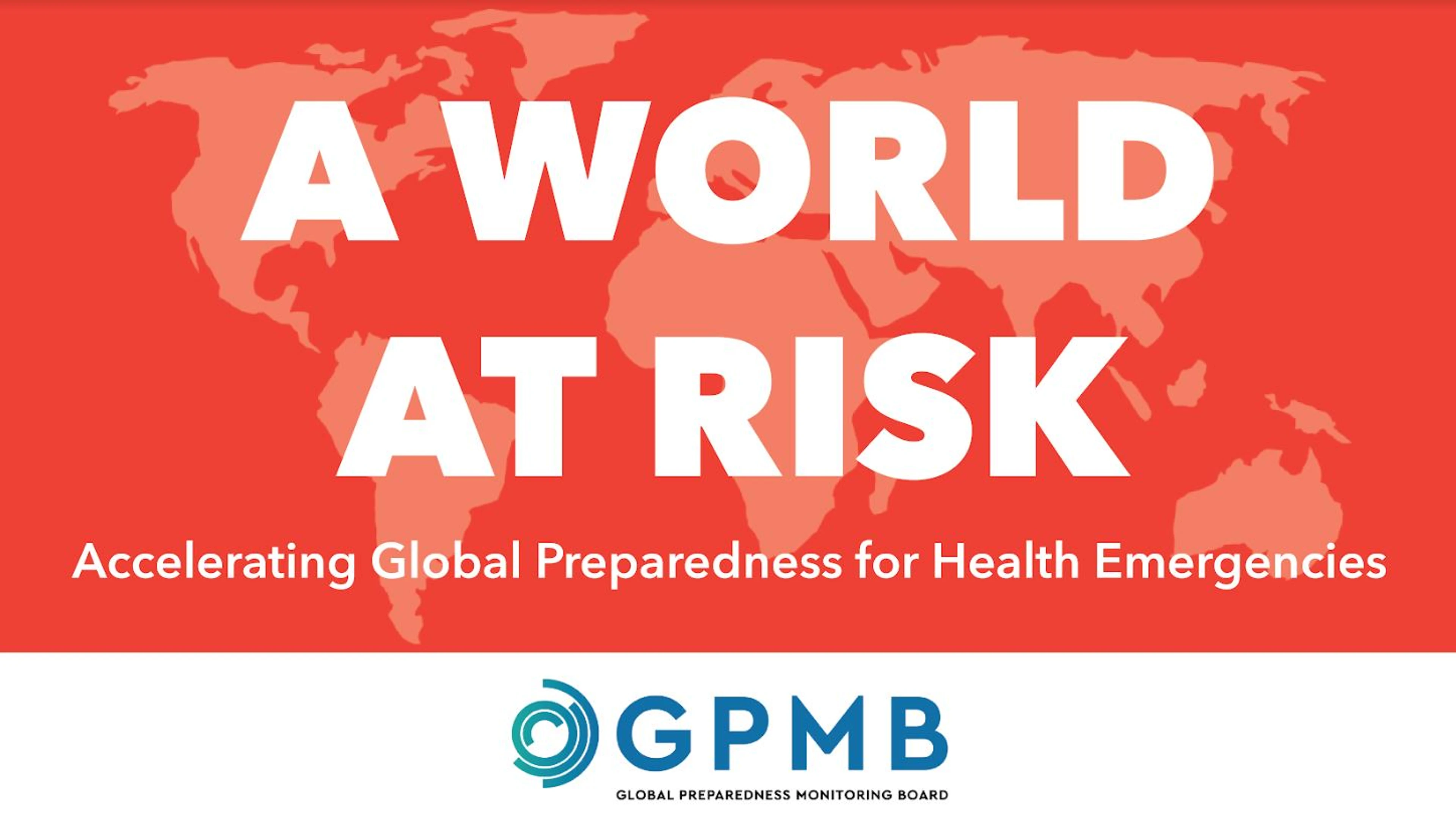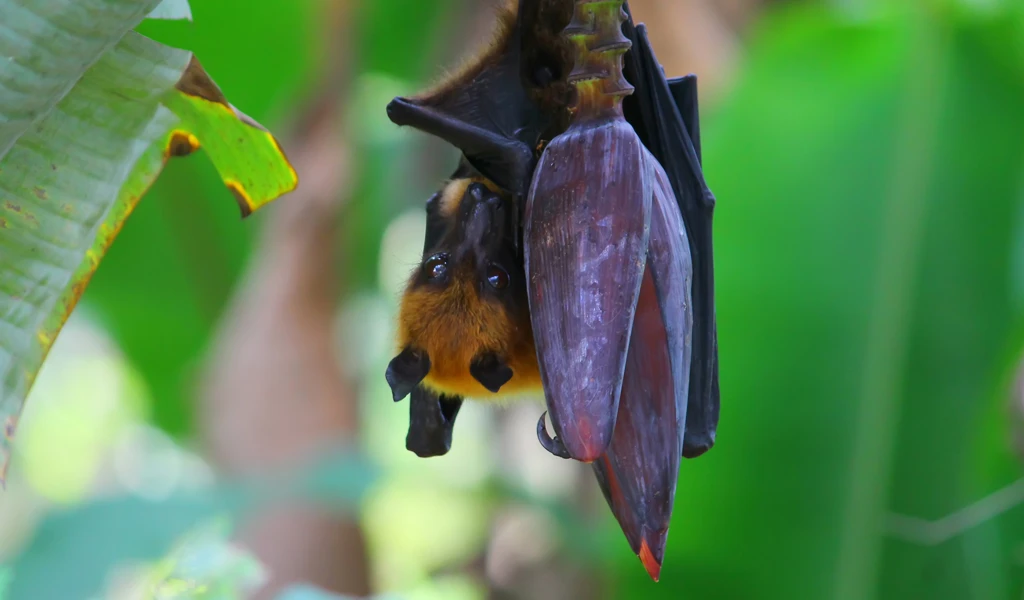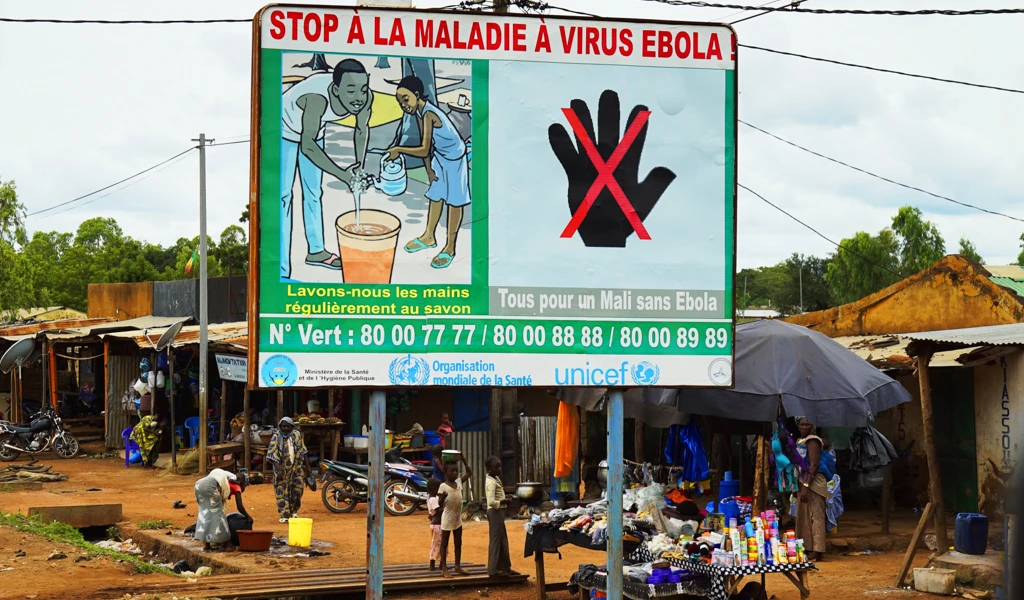Today, the Global Preparedness Monitoring Board (GPMB)—an independent monitoring and advocacy body, co-convened by the World Bank Group and the World Health Organization—launched "A World at Risk", its first report warning that the world is not prepared for a "fast-moving airborne pandemic that could kill up to 80 million people, disrupt economies and create social chaos". Their recommendations urge international and national leaders to take "immediate, forceful and bold action to prepare for all health emergencies."
Focusing on the growing challenges that threaten our stability to plan and respond to virulent disease outbreaks and global pandemics, the new report documents progress and remaining significant gaps in the world's preparedness, and identifies what steps governments, international agencies, and communities should take to prepare for and mitigate future deadly epidemics.
The report's key messages include:
- Our world is at acute risk from potentially devastating epidemics/ pandemics that would not only cause tremendous loss of life, but significantly disrupt economies and create social chaos.
- Leaders are responsible for protecting the security of their people, including health security, yet time and again, world leaders have failed to follow through on commitments around preparedness.
- The world has many of the collective tools to prevent and prepare for an outbreak, but current efforts are grossly insufficient and the need for new vaccines and drugs is critical.
While CEPI is recognised in the report as an example of progress within leadership driving forward action "to facilitate focused support for vaccine development to combat major health epidemic/pandemic threats, the GPMB propose 7 urgent actions for leaders to take to better prepare for future outbreaks.
These include; for leaders in each country to commit to and prioritise preparedness; for donors, countries and philanthropic institutions to invest more in R&D, including in vaccines, and for the development of a global system to immediately share the genomic sequences of newly identified pathogens (Disease X).
This is the first annual report to be produced by the GMPB, exploring and identifying the most urgent needs and actions required to accelerate preparedness for health emergencies, focusing in particular on epidemics and pandemics.
To produce their analysis and recommendations, the Board reviewed evidence and commissioned seven review papers that explore the challenge of preparedness: governance and coordination; country preparedness capacities; research and development; financing; enhancing community engagement and trust; preparing for and managing the fallout of high-impact respiratory pathogen pandemics; and lessons learned and persistent gaps revealed by recent outbreaks of Ebola.
The 15-member GPMB is made up of political leaders, heads of agencies, and experts, led jointly by Dr Gro Harlem Brundtland, formerly Prime Minister of Norway and Director-General of WHO, and Mr Elhadj As Sy, Secretary General of the International Federation of Red Cross and Red Crescent Societies. The expert group builds upon the work of the Global Health Crises Task Force and Panel, created by the UN Secretary-General in the wake of the 2014-16 West Africa Ebola Epidemic and aims to: assess the world's ability to protect from health emergencies; identify critical gaps to preparedness across multiple perspectives; and advocate for preparedness activities with national and international leaders and decision-makers.
"The 21st Century has already seen a number of devastating outbreaks of emerging infectious diseases: Ebola, MERS, Zika, Nipah to name a few. The outbreaks serve as a timely reminder of the serious social and economic impacts of such events and the need to prioritise epidemic preparedness.”
"The Global Preparedness Monitoring Board's first annual report highlights the mounting threat of disease outbreaks and the urgent need for global leaders to commit and invest in preparedness. The world is making progress but we need to come together to accelerate our efforts and prepare on both a national and global scale–including within the R&D space, where CEPI is advancing the development of vaccines and platform technologies against epidemic pathogens–to stop future outbreaks becoming global health emergencies.”



